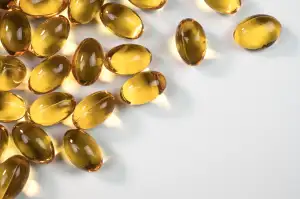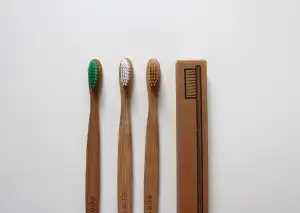Understanding the Importance of a Toothless Smile in Child Development for Optimal Dental Health

A toothless smile in children is a natural and temporary phase of development as they lose their baby teeth and transition to permanent teeth. This process typically begins around age 6 and continues until the early teenage years. While losing teeth can be an exciting milestone for children, it is essential to understand the importance of maintaining oral health during this period. Tooth loss can also occur in adults due to various reasons such as decay, gum disease, or trauma. Understanding the significance of toothless smiles in child development is crucial for ensuring optimal dental health throughout life.
Causes of Tooth Loss in Children and Adults
Causes of Tooth Loss in Children and Adults can vary, but some common factors include poor oral hygiene leading to decay and gum disease, trauma from accidents or sports injuries, genetic predisposition to dental issues, and certain medical conditions like diabetes or osteoporosis. In children, early childhood caries (also known as baby bottle tooth decay) is a significant cause of tooth loss. Additionally, habits like thumb sucking or using pacifiers for an extended period can also contribute to premature tooth loss. Regular dental check-ups and proper oral care are essential in preventing tooth loss in both children and adults.
Impact of Tooth Loss on Oral Health
Tooth loss in children can have a significant impact on their oral health. Without teeth, children may struggle with chewing food properly, leading to poor digestion and nutrition absorption. Additionally, tooth loss can affect speech development and pronunciation. It can also cause the remaining teeth to shift or become misaligned, increasing the risk of decay and gum disease. Overall, tooth loss in children can hinder their overall oral health and wellbeing if not addressed promptly by a dental professional.
Importance of Dental Care for Toothless Smiles
Even though a child's baby teeth eventually fall out to make way for permanent teeth, it is crucial to maintain proper dental care during the transition. The absence of teeth does not mean neglecting oral hygiene. In fact, maintaining good oral health without teeth is just as important as with them. Proper dental care for toothless smiles includes regular brushing of the gums, tongue, and roof of the mouth to remove bacteria and prevent infections. Additionally, visiting a dentist regularly for check-ups and cleanings can help monitor overall oral health and address any issues promptly. By prioritizing dental care even in the absence of teeth, individuals can ensure optimal oral health and prevent complications in the future.
Tips for Maintaining Oral Hygiene without Teeth
1. **Regularly Clean Gums:** Use a soft-bristled brush or damp cloth to gently clean the gums after meals to remove any food particles and bacteria.
2. **Use a Mouth Rinse:** Rinse your mouth with an antiseptic mouthwash to help reduce bacteria and keep your mouth fresh.
3. **Stay Hydrated:** Drink plenty of water throughout the day to keep your mouth moist and wash away food debris.
4. **Healthy Diet:** Consume a balanced diet rich in fruits, vegetables, and lean proteins to promote overall oral health.
5. **Regular Dental Check-ups:** Even without teeth, it is essential to visit the dentist regularly for check-ups and professional cleaning to maintain oral health.
6. **Denture Care:** If using dentures, ensure they are cleaned daily and properly stored when not in use to prevent bacterial growth.
7. **Avoid Smoking:** Smoking can increase the risk of gum disease and other oral health issues, so it's best to avoid tobacco products for optimal oral hygiene.
By following these tips, individuals with toothless smiles can maintain good oral hygiene and prevent potential dental problems associated with tooth loss.
Psychological Effects of Tooth Loss
The psychological effects of tooth loss can be significant, especially in children. Children may experience feelings of embarrassment, low self-esteem, and social anxiety due to missing teeth. They may also face challenges with speech development and have difficulty chewing certain foods, leading to nutritional deficiencies. Additionally, tooth loss can impact a child's overall confidence and quality of life. It is crucial to address these psychological effects early on to ensure the child's emotional well-being and development are not negatively affected by tooth loss.
Dental Solutions for Toothless Smiles
For children and adults experiencing tooth loss, there are various dental solutions available to restore oral function and aesthetics. One common option is dental implants, which are artificial tooth roots surgically placed into the jawbone to support replacement teeth. Dentures, both partial and full, are removable appliances that can replace missing teeth and restore chewing ability. Another solution is dental bridges, which consist of artificial teeth anchored to adjacent natural teeth for support.
It is essential to consult with a qualified dentist or prosthodontist to determine the most suitable treatment option based on individual needs and oral health status. These professionals can assess the condition of the mouth, discuss treatment goals, and recommend the most appropriate dental solution for optimal oral health and overall well-being. Regular follow-up visits are crucial to ensure the longevity and effectiveness of the chosen dental solution for toothless smiles.
In conclusion, the importance of seeking professional dental advice cannot be overstated when it comes to maintaining optimal oral health, especially for individuals with toothless smiles. Dentists can provide personalized care plans, offer solutions for missing teeth such as implants or dentures, and monitor overall oral health to prevent further complications. Regular check-ups and professional cleanings are essential for preventing gum disease and maintaining overall well-being. Remember, a healthy smile starts with proper dental care and regular visits to your dentist.
Published: 26. 03. 2024
Category: Health



